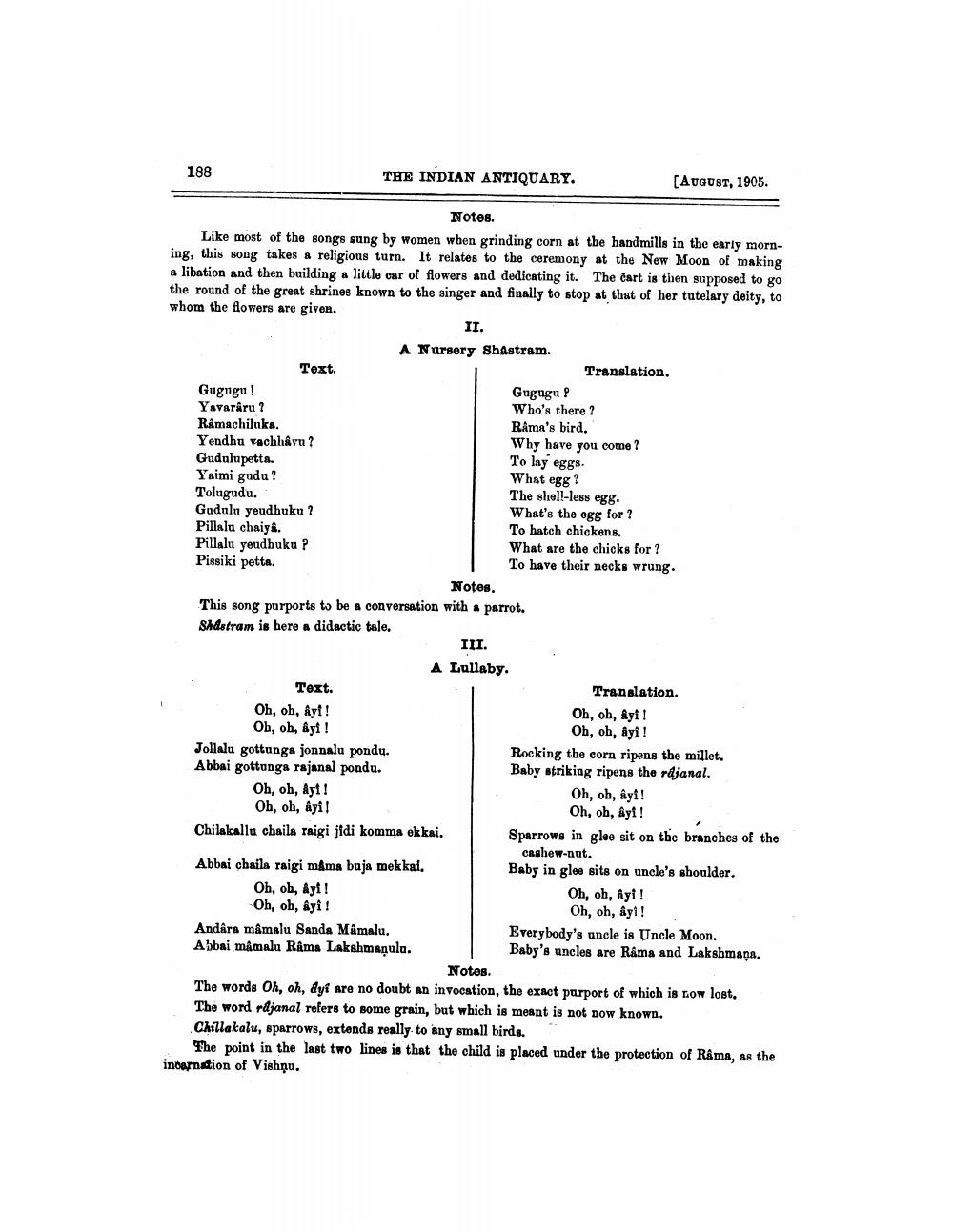________________
188
THE INDIAN ANTIQUARY.
(August, 1905.
Notes. Like most of the songs sung by women when grinding corn at the handmills in the early morning, this song takes a religious turn. It relates to the ceremony at the New Moon of making a libation and then building a little car of flowers and dedicating it. The cart is then supposed to go the round of the great shrines known to the singer and finally to stop at that of her tutelary deity, to whom the flowers are given.
A Nursery Shastram. Text.
Translation. Gugogu!
Gugugu? Yavaráru ?
Who's there? Râmachiluka.
Rama's bird. Yendhu Fachhavn?
Why have you come ? Gudulupetta.
To lay eggs. Ysimi gudu?
What egg? Tolugudu.
The shell-less egg. Gadulo yeudhuku?
What's the egg for? Pillala chaiya.
To hatch chickens. Pillalu yeudhuku ?
What are the chicks for ? Pissiki petta.
To have their necks wrung.
Notes. This song purports to be a conversation with a parrot. Shdstram is here a didactic tale.
III.
A Lullaby. Text.
Translation. Oh, oh, Ayt!
Oh, oh, &yf ! Oh, oh, ayi!
Oh, oh, ayi! Jollalu gottunga jonnalu pondy.
Rocking the corn ripens the millet. Abbai gottunga rajanal pondu.
Baby striking ripens the rdjanal. Oh, oh, Ayt!
Oh, oh, ayf! Oh, oh, ayi!
Oh, oh, ayi! Chilakalla chaila raigi jfdi komma ekkai. Sparrows in glee sit on the branches of the
cashew-nut. Abbai chaila raigi mama baja mekkal.
Baby in gloe sits on uncle's shoulder. Oh, oh, âyi!
Oh, oh, âyi! Oh, oh, âyi!
Oh, oh, ayi! Andâra måmalu Sanda Mâmalu.
Everybody's uncle is Uncle Moon. Abbai mamala Râms Lakshmaṇula.
Baby's uncles are Rama and Lakshmana.
Notes. The words Oh, oh, dyr are no doubt an invocation, the exact parport of which is now lost. The word rdjanal refers to some grain, but which is meant is not now known. Chillakalu, Sparrows, extends really to any small birds.
The point in the last two lines is that the child is placed under the protection of Râma, as the internation of Vishņu.




